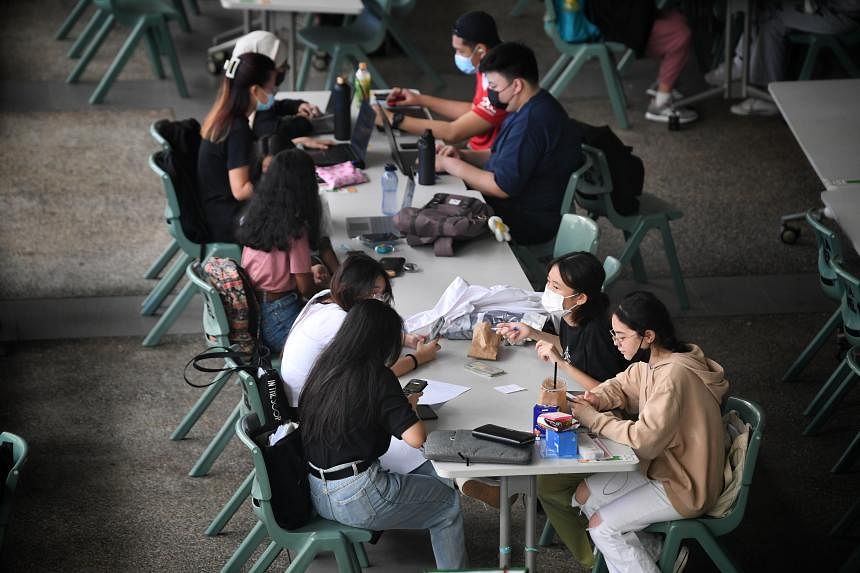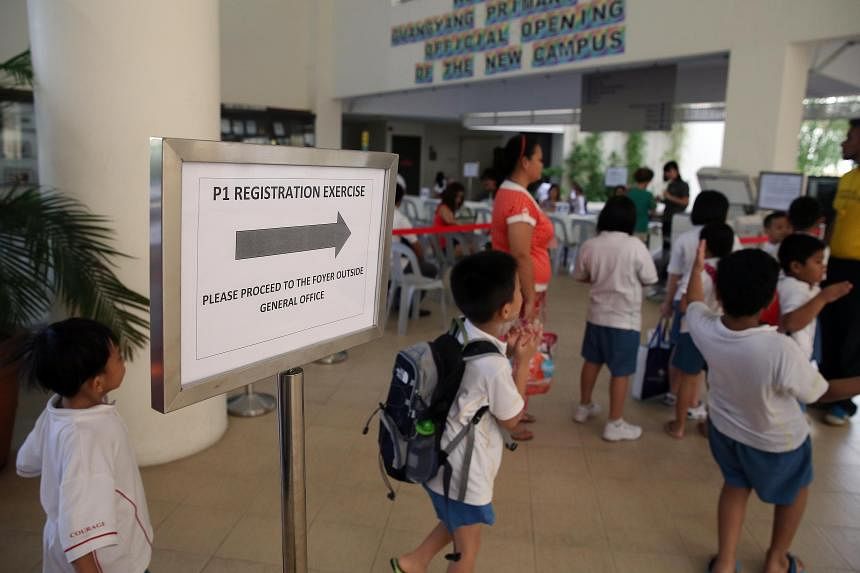- Joined
- Jul 14, 2008
- Messages
- 89,718
- Points
- 113
from straitstimes.com:

ChatGPT can be a useful tool for learning only when students have mastered basic concepts and thinking skills. PHOTO: ST FILE

Zhaki Abdullah
UPDATED
7 FEB 2023, 12:00 AM SGT
FacebookTwitter
SINGAPORE - The Ministry of Education (MOE) is guiding teachers in schools and institutes of higher learning on how to use artificial intelligence (AI) tools such as ChatGPT to enhance learning, given that these tools are likely to become pervasive over time.
There are also professional discussion groups among educators to explore the use of AI tools, Education Minister Chan Chun Sing told Parliament on Monday.
He likens ChatGPT to a calculator for learning mathematics, but said that ChatGPT can be a useful tool for learning only when students have mastered basic concepts and thinking skills. This is why MOE will also equip students with the skills to use AI tools responsibly, he added.
He was responding to questions from MPs about what his ministry is doing to address the possible abuse of the intelligent chatbot in schools here.
Developed by San Francisco research firm OpenAI, ChatGPT has made headlines in recent months for its ability to produce essays and solve mathematical equations in seconds.
Internationally, concerns have surfaced over the potential abuse of ChatGPT, such as plagiarism. Top French research university Sciences Po, for one, has banned the use of such AI tools amid fears of plagiarism and fraud. Australian states New South Wales, Queensland and Tasmania have also banned access to ChatGPT in state schools over concerns that it could be used to cheat in assessments or homework.
Dr Tan Wu Meng (Jurong GRC) had asked how such AI tools would affect student coursework and open-book assessments.
Replying, Mr Chan said students will still be taught to understand fundamental concepts and not to overly rely on such tools. It will be similar to how calculators have not removed the need for students to understand basic mathematical operations.
Students will also be taught to understand how AI tools work, and must be able to critically assess the responses from such tools, which can be inaccurate or biased, for accuracy and objectivity, he added.
Dr Wan Rizal Wan Zakariah (Jalan Besar GRC) asked what measures were in place to prevent cheating using AI.
Replying, Mr Chan said that institutes of higher learning have varied modes of assessment – such as examinations, presentations, and projects – which require analysis, field notes and observational details that cannot be generated easily by AI technology.
“A wide variety of strategies are adopted to detect plagiarism in assignments, including technological tools to detect content generated by AI technology,” he said, adding that such approaches will evolve over time.
Meanwhile, there are skills such as self-directed and collaborative learning and inventive thinking that are not easily replaced by technological tools, but are acquired through leadership roles, interdisciplinary project work and experiential learning, said Mr Chan.
Dr Lim Wee Kiak (Sembawang GRC) asked whether the policies regarding the use of AI in cheating in schools were clearly spelled out and communicated to students, as well as whether any instances of cheating using such tools had been detected and if so, what penalties did those involved face.
“Cheating is cheating. Cheating is not tolerated in any of our educational institutions,” Mr Chan replied.
While technology may be able to help some better derive their answers, students are expected to declare truthfully their sources of information, he said.
Students, teachers will learn to properly use tools like ChatGPT: Chan Chun Sing

ChatGPT can be a useful tool for learning only when students have mastered basic concepts and thinking skills. PHOTO: ST FILE

Zhaki Abdullah
UPDATED
7 FEB 2023, 12:00 AM SGT
FacebookTwitter
SINGAPORE - The Ministry of Education (MOE) is guiding teachers in schools and institutes of higher learning on how to use artificial intelligence (AI) tools such as ChatGPT to enhance learning, given that these tools are likely to become pervasive over time.
There are also professional discussion groups among educators to explore the use of AI tools, Education Minister Chan Chun Sing told Parliament on Monday.
He likens ChatGPT to a calculator for learning mathematics, but said that ChatGPT can be a useful tool for learning only when students have mastered basic concepts and thinking skills. This is why MOE will also equip students with the skills to use AI tools responsibly, he added.
He was responding to questions from MPs about what his ministry is doing to address the possible abuse of the intelligent chatbot in schools here.
Developed by San Francisco research firm OpenAI, ChatGPT has made headlines in recent months for its ability to produce essays and solve mathematical equations in seconds.
Internationally, concerns have surfaced over the potential abuse of ChatGPT, such as plagiarism. Top French research university Sciences Po, for one, has banned the use of such AI tools amid fears of plagiarism and fraud. Australian states New South Wales, Queensland and Tasmania have also banned access to ChatGPT in state schools over concerns that it could be used to cheat in assessments or homework.
Dr Tan Wu Meng (Jurong GRC) had asked how such AI tools would affect student coursework and open-book assessments.
Replying, Mr Chan said students will still be taught to understand fundamental concepts and not to overly rely on such tools. It will be similar to how calculators have not removed the need for students to understand basic mathematical operations.
Students will also be taught to understand how AI tools work, and must be able to critically assess the responses from such tools, which can be inaccurate or biased, for accuracy and objectivity, he added.
Dr Wan Rizal Wan Zakariah (Jalan Besar GRC) asked what measures were in place to prevent cheating using AI.
Replying, Mr Chan said that institutes of higher learning have varied modes of assessment – such as examinations, presentations, and projects – which require analysis, field notes and observational details that cannot be generated easily by AI technology.
“A wide variety of strategies are adopted to detect plagiarism in assignments, including technological tools to detect content generated by AI technology,” he said, adding that such approaches will evolve over time.
Meanwhile, there are skills such as self-directed and collaborative learning and inventive thinking that are not easily replaced by technological tools, but are acquired through leadership roles, interdisciplinary project work and experiential learning, said Mr Chan.
Dr Lim Wee Kiak (Sembawang GRC) asked whether the policies regarding the use of AI in cheating in schools were clearly spelled out and communicated to students, as well as whether any instances of cheating using such tools had been detected and if so, what penalties did those involved face.
“Cheating is cheating. Cheating is not tolerated in any of our educational institutions,” Mr Chan replied.
While technology may be able to help some better derive their answers, students are expected to declare truthfully their sources of information, he said.









































